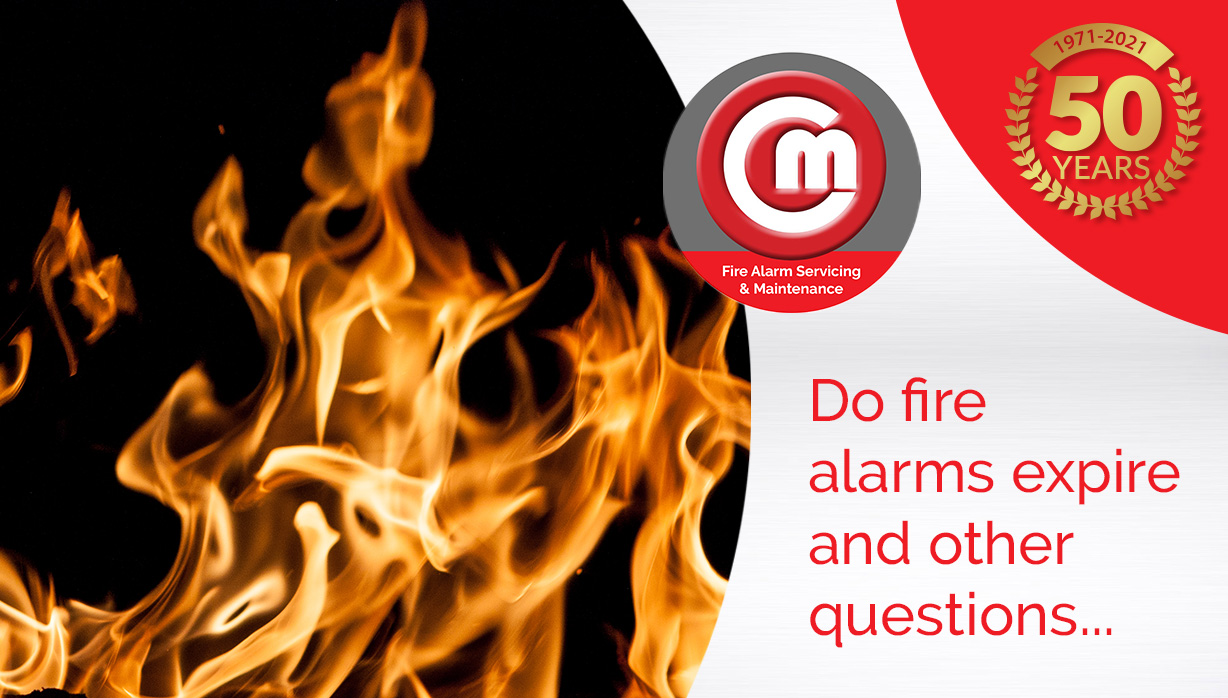
So, did you know, fire alarms don’t expire, but they do need replacing?
It’s a commonly asked question, and as with some other alarms, like carbon monoxide, they do need replacing, as nothing lasts forever.
So how often should you replace your fire alarm?
Let’s be clear, fire alarm systems and smoke alarms are different. Every home should have a working smoke alarm as they are proven to save lives. Smoke alarms alert you to the danger of smoke and therefore possibly fire and need testing weekly. They usually ‘chirp’ or flash when the battery needs replacing, and it is advised you replace them every ten years. This is due to improvements in technology and the sensors within them degrading over time.
Fire alarm systems in larger buildings, commercial and houses of multiple occupancies need to be tested weekly by a responsible person in addition to being serviced and maintained on a regular basis, at least every six months. This check must be by a professional, ideally, a BAFE-registered company, like us. A professional fire alarm engineer can advise when your fire alarm needs replacement parts, or a new system installed. Again, with advancements in technology and changes in legislation, it is advised that a fire alarm system of this type may need replacing between 15-25 years.
Do smoke and fire alarms hurt your ears?
In a way, yes, they do, but to possibly save your life.
Smoke and fire alarms are designed to trigger a response in you to alert you to danger. Those without or impaired hearing may have a buzzer that vibrates, flash, or have a lower frequency alarm which also has the same effect.
All smoke alarms must be capable of waking an adult from a deep sleep, which means they must sound at a minimum of 85 decibels from 3 metres away – that’s comparable to the volume of a bus passing through your living room.
Commercial fire alarms are set at somewhere between 65 to 120 decibels as there may be a lot of background noise for the alarm to compete with especially if you are in a factory or school.
These types of alarms, however, shouldn’t damage your hearing as you should hear the alarm and exit the building or area where it is, so the noise and any pain you feel should be temporary.
Why do you get false alarms?
A false alarm is when the alarm goes off but there is no fire.
There are many reasons why an alarm may have been activated when there isn’t a fire. Reasons such as burning food, dust build-up, and steam, there is also human error or malicious intent and if the alarm system is at fault and needs servicing or repair.
A false alarm is of real concern as it will disturb people or businesses and will also waste the valuable time of emergency services.
Therefore, your fire alarm system should always be maintained to ensure it is working as it should, especially in the event of a fire and to cut down on any false alarms.
Does your fire alarm system need some attention?
Email C&M Fire Alarms – opens new email >>
Or call our office and speak to a friendly advisor: 01403 268178